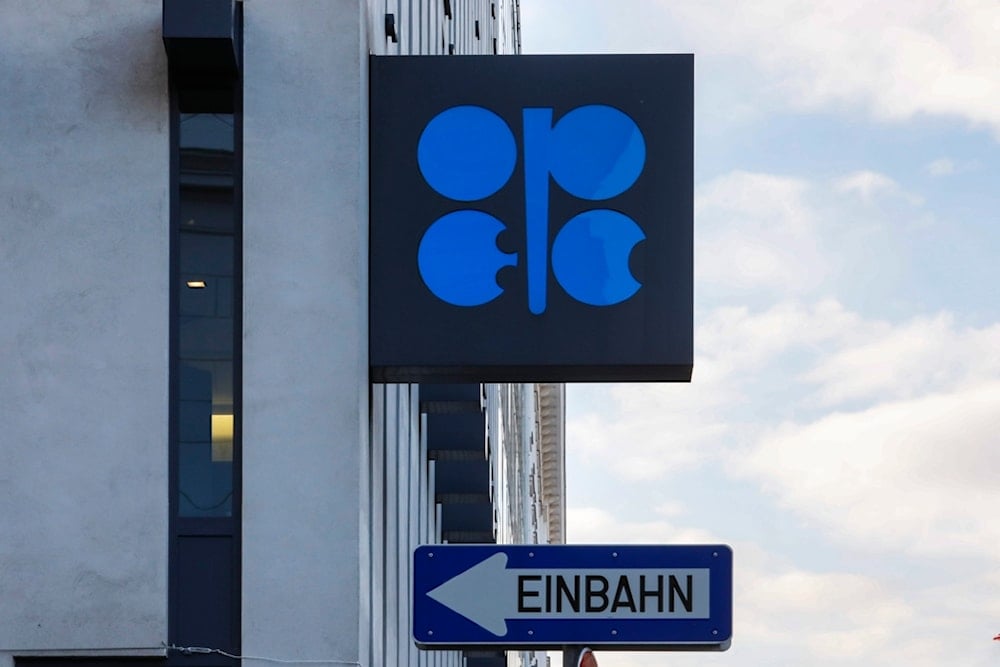OPEC lowers oil demand forecast amid China slowdown, green shift
OPEC has cut its short-term oil demand forecast, citing China's economic slowdown and rising renewable energy adoption in advanced economies, while projecting continued long-term growth driven by developing countries.
-

The logo of the Organization of the Petroleoum Exporting Countries (OPEC) is seen outside of OPEC's headquarters in Vienna, Austria, March 3, 2022 (AP)
The Organization of the Petroleum Exporting Countries (OPEC) has lowered its global oil demand forecast for the next four years, citing a combination of China's economic deceleration and a surge in renewable energy adoption across advanced economies. Despite this downward revision, the group maintains that fossil fuel demand will continue rising in the long term, particularly in developing countries with expanding energy needs.
In its 2025 World Oil Outlook released Thursday, OPEC estimated that global oil demand will average 105 million barrels per day (bpd) this year, rising modestly to 106.3 million bpd in 2026. The trend is expected to continue gradually, reaching 111.6 million bpd by 2029. The report explicitly rejected claims that global oil demand has peaked, asserting, “there is no evidence” to support such a conclusion.
Uneven Energy Transition
China's ongoing economic slowdown played a central role in the adjustment. The country faces persistent deflationary pressure, weak domestic consumption, and a prolonged real estate crisis that continues to weigh heavily on its industrial output.
Trade tensions with the United States have further dampened exports, contributing to a broader slowdown in energy demand. According to OPEC, these challenges are expected to constrain Chinese oil consumption growth in the medium term.
At the same time, developed economies are rapidly transitioning toward renewable energy sources. Plummeting costs for solar and wind power, alongside strong policy incentives for electrification and climate targets, have led to a measurable drop in oil dependency—especially in the power and transport sectors. Nations across Europe and North America are increasingly shifting toward electric vehicles and green infrastructure, undermining oil's traditional dominance in these areas.
However, OPEC noted that global demand dynamics are far from uniform. In the Global South—particularly in regions such as sub-Saharan Africa, the Middle East, and South Asia—oil demand is expected to grow robustly as countries expand infrastructure, urbanize, and seek to provide reliable energy to growing populations. In these contexts, fossil fuels remain central to national development strategies, given the high cost and limited availability of renewable alternatives.
Read more: Rich nations owe poor countries $192 tln for climate crisis: Study
Overall, the trend reflects a fragmented global energy landscape, where declining oil demand in industrialized nations is offset by sustained growth in developing regions.

 3 Min Read
3 Min Read










